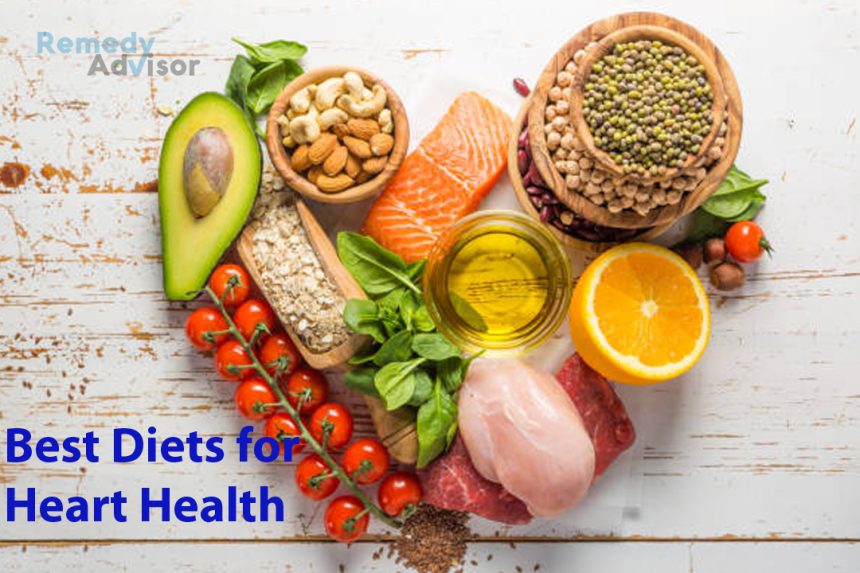Researchers have identified three mechanisms by which to lower the risk of developing heart disease
• Lower the amount of LDL (bad) cholesterol in the blood
An LDL level in excess of 100 confers an increased risk for heart disease.
• Block oxidation of LDL cholesterol
LDL cholesterol is benign until it has been oxidized. Only then can it be incorporated into obstructions along the walls of the coronary arteries. These obstructions are called plaques.
• Control blood clotting
Heart attacks occur when a plaque fissures or cracks, triggering formation of clots that block the flow of blood to the heart.
How do you set these mechanisms into motion? Regular exercise, avoiding smoking and keeping your blood pressure and weight under control are essential. But that’s only the beginning
Heart-protective foods
A diet low in saturated fat reduces levels of LDL cholesterol. In addition, certain foods have extra power to protect the heart
• Olive oil
While it’s a good idea to reduce consumption of all kinds of dietary fat (including oils), substituting olive oil for other oils helps keep your heart healthy.
The monounsaturated fats in olive oil reduce levels of LDL cholesterol while raising levels of HDL (good) cholesterol.
What makes monounsaturated fats superior to the polyunsaturated fats found in most other vegetable oils? They don’t facilitate the conversion of cholesterol into its oxidized form.
• Nuts
Almonds and pistachios contain the same kind of monounsaturated fats found in olive oil. While nuts are too fatty to eat all the time, an occasional snack of almonds or pistachios could be beneficial to your heart.
• Garlic
In addition to reducing LDL and raising HDL, garlic helps prevent blood clotting. If you don’t like the taste of garlic or worry about bad breath take garlic capsules.
• Fish
Numerous studies have shown that the omega-3 oils in certain kinds of fatty fish (cod, salmon, tuna, sea bass etc.) inhibit blood clotting and lower the risk for sudden cardiac death.
Try to eat fish at least once a week. Fish oil capsules can be rancid, and rancid oil boosts the oxidation of cholesterol.
• Soy foods
Miso soup, tofu, textured vegetable protein (TVP) and other soy products lower levels of LDL cholesterol. Researchers suspect that a compound in soy called beta-sitosterol is responsible for soy’s cholesterol lowering effect.
• Red wine
Any form of alcohol raises HDL cholesterol and reduces clotting. Red wine has additional benefits if consumed in moderation (no more than two glasses a day). It contains clot-inhibiting bioflavonoids and resveratrol, a powerful antioxidant that guards cholesterol from oxidation.
Vitamin supplements
• Vitamin. E

A potent antioxidant, vitamin E keeps LDL cholesterol from turning into its toxic form. Ask your doctor about an appropriate dose for you.
Of the many forms of vitamin E now available, capsules containing d-alpha tocopherol succinate are best. These capsules don’t go rancid. Oil-filled vitamin E capsules sometimes do.
• Vitamin C
This antioxidant vitamin protects the smooth tissue that lines the coronary arteries against microscopic injuries caused by high blood pressure, smoking and high cholesterol. It’s these injuries that are thought to provide a beachhead for plaques.
Studies suggest that a daily dose of at least 500 milligrams (mg) of vitamin C is best.
Since the usual form of vitamin C (ascorbic acid) can cause stomach irritation, it’s better to get your C in the form of calcium ascorbate or magnesium ascorbate.
• B Vitamins
B-6, B-12 and folic acid all reduce blood levels of homocysteine. High levels of this clot-promoting amino acid are linked to heart disease.
It’s best simply to take daily doses of the B vitamins. 100 mg of B-6 500 micrograms (meg) of B-12 and 800 meg of folic acid is suitable.
• Carotenoids
Beta-carotene is the best known member of this family of antioxidants.
Studies suggest that another carotenoid called lycopene also offers protection against heart disease. Tomatoes are an excellent source of lycopene.
It’s best to get your carotenoids in their natural form red, yellow or leafy green vegetables. If you’d like to take carotenoids in supplement form, pick a supplement containing “natural mixed carotenoids.”
Mineral supplements
- Selenium
This mineral is the raw material used by the body to make the antioxidant enzyme glutathione. People who take selenium supplements face a reduced risk for both heart disease and cancer. The usual dose is 200 mcg a day.
• Chromium
It helps keep levels of blood sugar in balance. Elevated blood sugar spurs the body to secrete insulin, and chronically high insulin levels can lead to obesity, high blood pressure and high triglycerides. All boost heart disease risk.
Heart patients should take 200 mcg of chromium picolinate or chromium polynicotinate. These natural forms of chromium are safe and readily absorbed.
• Magnesium and potassium
Magnesium helps lower blood pressure by relaxing the tiny muscles that line blood vessel walls. Potassium lowers blood pressure by replacing sodium, a known provoker of high blood pressure.
The best way to get these minerals is from fruits and vegetables. Bananas and citrus fruits are especially good sources.







